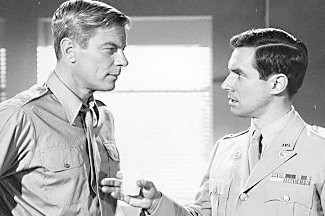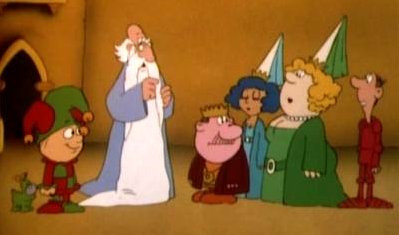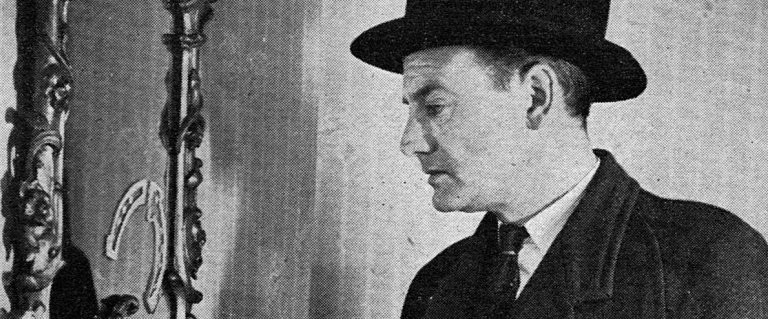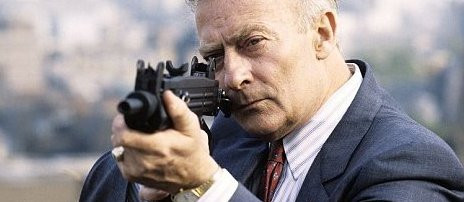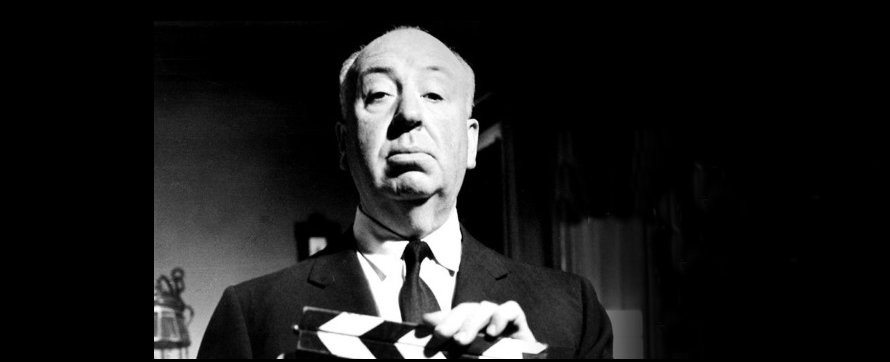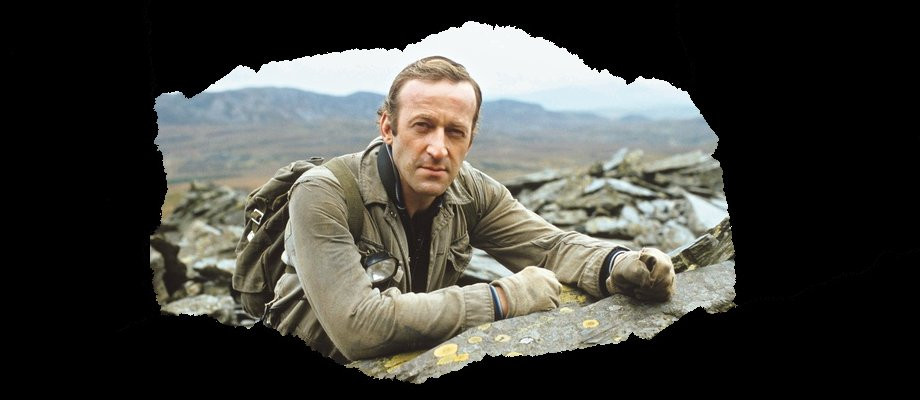
Edge of Darkness
1985 - United KingdomWhen Edge of Darkness was given a decent DVD release courtesy of the BBC it was, in some ways, sad to see the amiable, slightly nervy but gracious figure of Bob Peck being interviewed in archive material. He chatted about the series success and his award at the BAFTA's with a smidge of the star.
Peck's performance as Yorkshire police officer Ronald Craven in the series is perhaps one of the finest ever seen on British TV - his shock and utter grief at the death of his daughter is one of the most profoundly moving performances committed to film. I'm certain audiences would not have stuck with what is a depressing, murky and multi-layered political thriller with mystical overtones if it had not been for Peck's towering performance. This man knew his craft. Would today's programme makers take such a step to cast someone of the quality and background (years on the stage, including a lengthy stint at The Royal Shakespeare Company)? Edge of Darkness owes a tremendous amount to Bob Peck. On his death in April 1999 at the age of only 53 Edge of Darkness was not only one of the most ambitious productions, but also the most critically acclaimed and successful ratings grabbers the BBC ever produced.
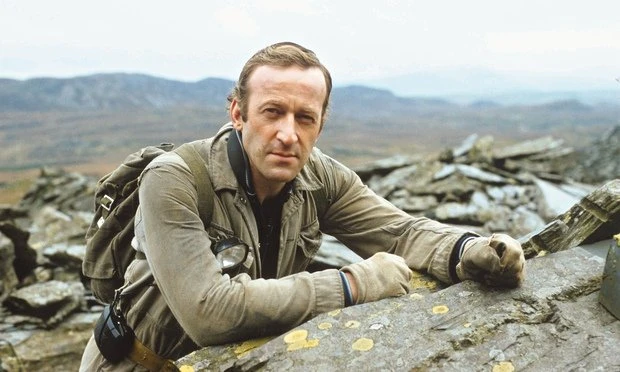
Bob Peck was 39 when he undertook the role of Ronnie Craven. He had no formal training as an actor and had instead studied art and design at Leeds College of Art. Peck became involved in an amateur dramatic company and it was there that he was spotted by playwright Alan Ayckbourn who immediately offered him work at his Scarborough theatre company. After West End appearances and local rep he joined the Royal Shakespeare Company and stayed for nine years.
He was not the first choice for the part by the production crew. Both scriptwriter Troy Kennedy Martin and producer Michael Wearing preferred another established leading man. Director Martin Campbell (fresh from the success of his political thriller Frankie And Johnnie in 1985) wanted to cast an unknown to avoid associations with other programmes. The script also called for a native Yorkshire man. Once Peck had been cast, he prepared for the role by discussing the effects of grief with his local GP and reading up on Gaia philosophy and theories.
The origins of the series date back, in part, to 1964 when Troy Kennedy Martin published an article in the magazine Encore arguing for a new form of TV drama. Kennedy Martin wanted to go beyond the 'talking heads' and the theatre feel of then current drama and free the dramatic structure of scripts to create more complex fusions of sight and sound to exploit what he coined "the total objectivity of the camera." He would later go on to create both Z Cars and The Sweeney, and despite pushing towards this new form he still felt constricted by the naturalistic format of each show, leaving both early on their runs in the creative hands of others.
It wasn't until the 1980's that he was finally able to begin to explore non-naturalistic television drama with his free ranging adaptation of Angus Wilson's The Old Men in the Zoo for BBC 2. This was followed by Edge of Darkness, a project that would fuse both his fears and philosophies to his passion for a new wider ranging form of TV drama. Kennedy Martin had drafted the first episode in 1981, entitling the series Magnox after the nuclear power stations built in the UK between the 1950's and 1970's, and had been encouraged by Jonathan Powell, Head of BBC Drama, to develop the series in whatever direction he felt necessary.
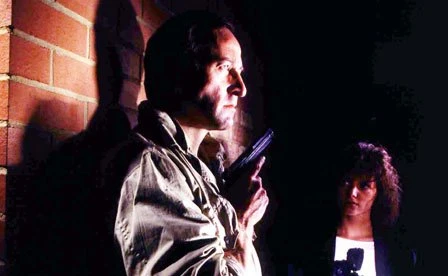
The 1980's were not the best of decades. Politically the UK was in the grip of Thatcherism and the US had Ronald Reagan as President. The Cold War was still a major issue and dominated World politics along with the proliferation of nuclear weapons and power. In the script book of the series Kennedy Martin set the scene himself: "It was the time when the White House changed its nuclear strategy from the thirty-year-old notion of mutually assured destruction (MAD) to the idea that a nuclear war was winnable. It was a time when 30,000 nuclear weapons were thought too old and too few and the whole armoury had to be modernized. And on top of that, 25 billion dollars was to be spent on space weapons. In March 1983 President Reagan made his 'star wars' speech allocating this money to the Strategic Defence Initiative: a defence umbrella, which would safeguard America... The bitterly fought Inquiry into Sizewell B and the continued problems at Sellafleld contributed to the feeling of a country moving remorselessly towards a nuclear state, with all that meant for the loss of civil liberties. There was no hint of the privatization of the CEGB as yet, but with a battle with the miners looming, it was obvious that nuclear power was becoming a more attractive option, and a permanent way of crushing them. It was only a matter of time before Mrs Thatcher's entrepreneurs would get their hands on the nuclear-waste business."
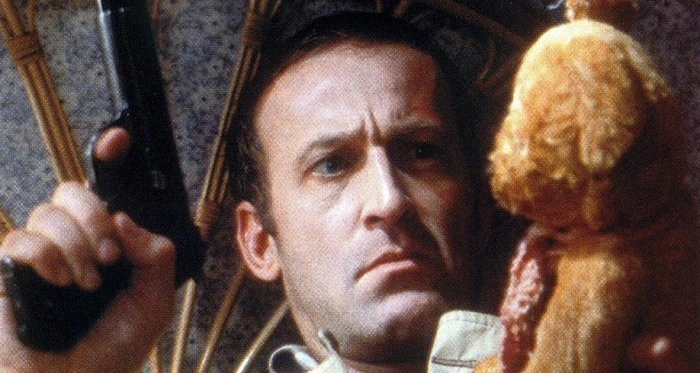
So it was against this political backdrop of that Edge of Darkness was conceived, created and transmitted, something which also surely helped with the success of the series as it tapped into the fears and suspicions of the viewing public. The series made several spot-on predictions with mentions of a war in the Gulf and the Tory party declaring nuclear power a green initiative, as it did not add to the greenhouse gases and global warming. The landscape of broadcasting was also changing. The BBC's Play for Today strand had ended in August 1984, giving way to the made-for-television film as demonstrated with the advent of Screen One and the drama serial. Edge of Darkness also marked a departure from realism and naturalism in drama towards a more wide-ranging narrative approach that embraced epic narrative, symbolism and "the total objectivity of the camera."
Composer Michael Kamen, who died at the far too early age of 55 in November 2003, together with Eric Clapton was responsible for the evocative and the BAFTA award-winning music, which is also at the core of the roduction’s success.
These factors and the intense direction by Martin Campbell tapped into the key fears of the time: nuclear proliferation, government secrecy, the effects of Thatcherism and Reaganism and the very future of the planet. The series was deservedly described as the seminal thriller of the 1980's with a first run on BBC 2, which gained an average of 4 million viewers. The series was rapidly repeated on BBC 1, doubling viewers to 8 million, and went onto scoop six BAFTA awards including Best Drama. Kennedy Martin had at last achieved a life-long ambition and helped to create the most ambitious and progressive drama of the 1980's.
Seen this show? How do you rate it?
Seen this show? How do you rate it?
Published on May 27th, 2019. Written by Andrew Screen for Television Heaven.





